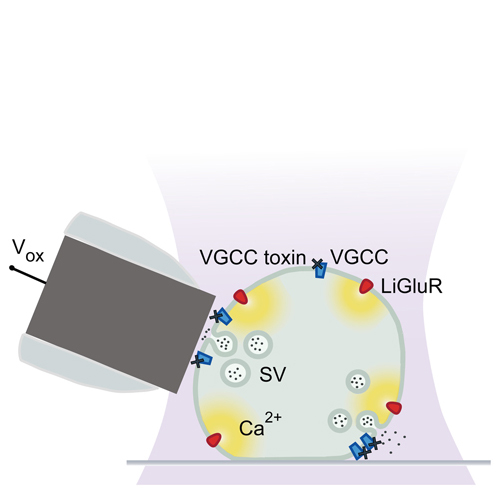Optical modulation of neurotransmission using calcium photocurrents through the ion channel LiGluR
21-Mar-2013
Front. Mol. Neuroscience, 2013, doi: 10.3389/fnmol.2013.00003, published on 21.03.2013
Front. Mol. Neuroscience, online article
Front. Mol. Neuroscience, online article
A wide range of light-activated molecules (photoswitches and phototriggers) have been used to the study of computational properties of an isolated neuron by acting pre and postsynaptically. However, new tools are being pursued to elicit a presynaptic calcium influx that triggers the release of neurotransmitters, most of them based in calcium-permeable Channelrhodopsin-2 mutants. Here we describe a method to control exocytosis of synaptic vesicles through the use of a light-gated glutamate receptor (LiGluR), which has recently been demonstrated that supports secretion by means of calcium influx in chromaffin cells. Expression of LiGluR in hippocampal neurons enables reversible control of neurotransmission with light, and allows modulating the firing rate of the postsynaptic neuron with the wavelength of illumination. This method may be useful for the determination of the complex transfer function of individual synapses.











